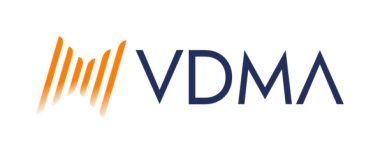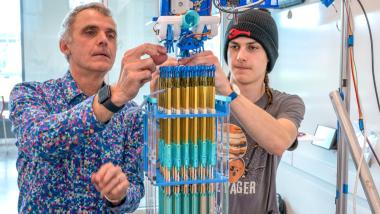SHIMA SEIKI to Exhibit at Saudi Stitch & Tex
Leading Japanese computerized flat knitting technologist SHIMA SEIKI MFG., LTD. of Wakayama, Japan, together with its sales representative in Saudi Arabia Star Sewing Machines Trading L.L.C., will participate in the upcoming 21st International Expo for Textile, Garment, Printing, Yarn and Fabric Machinery, Technology and Innovations (Saudi Stitch & Tex 2025) to be held in Riyadh, Saudi Arabia this month.
SHIMA SEIKI will be exhibiting at Saudi Stitch & Tex for the first time with a lineup of knitting machines and design software.
SWG®091N2
SHIMA SEIKI’s SWG®091N2 compact WHOLEGARMENT® knitting machine can produce a wide range of WHOLEGARMENT® items in their entirety without the need for linking or sewing. The SWG®-N2 series “Mini” range is suited to the production of small knit items and accessories such as gloves, socks, hats and scarves as well as pet wear, cozies, shoe uppers, bags, card cases, glasses cases, smartphone covers and other personal items, as well as functional items such as for sports and medical applications. At Saudi Stitch & Tex SWG®091N2 will be shown in 15 gauge.
N.SSR®112
N.SSR®112 is a computerized flat knitting machine that offers leading technology in an economical yet reliable package. Featuring industry-leading innovations such as the R2CARRIAGE® that yields quicker carriage returns for greater efficiency, spring-type moveable sinker system, DSCS® Digital Stitch Control System, stitch presser and takedown comb, Made-in-Japan quality, reliability and productivity, as well as user-friendliness and cost-performance combine to satisfy the high expectations of the world’s fashion industry. Shown in 12 gauge at Saudi Stitch & Tex, N.SSR®112 is even capable of WideGauge® knitting whereby a number of different gauges can be knit into a single garment.
SDS® KnitPaint-Online
KnitPaint is proven software used by knitting companies across the globe to create knitting data for programming SHIMA SEIKI computerized flat knitting machines. Previously available only as part of SHIMA SEIKI's SDS®-ONE APEX series all-in-one design system, with SDS® KnitPaint-Online, KnitPaint software becomes available as standalone software that carries over the same familiar KnitPaint functions, but enhanced with basic planning and design functionality as well.
APEXFiz®
SHIMA SEIKI’s APEXFiz® subscription-based design software supports the creative side of fashion from planning and design to colorway evaluation, realistic fabric simulation and 3D virtual sampling. Virtual samples are a digitized version of sample making that are visually accurate enough to be used effectively as prototypes, replacing physical sampling and consequently reducing time, cost and material that otherwise go to waste. When a design is approved for production, knitting data which is automatically generated can be converted easily to machine data, allowing smooth communication for digitally bridging the gap between design studio and factory. Before going to production however, the same virtual sample can be used in retail, for example in e-commerce, to gauge consumer response to items before going to market, effectively realizing production based on demand forecasting. In such a way, inventory can be optimized to minimize deadstock waste. APEXFiz® therefore helps to realize sustainability while digitally transforming the fashion supply chain.
Shima Seiki


























